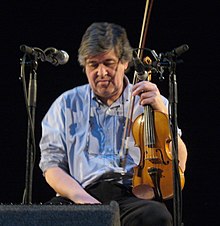
The Donegal fiddle tradition is one of the distinct fiddle traditions within Irish traditional music. The distinctness of the Donegal tradition developed due to the close relations between County Donegal and Scotland, and the Donegal repertoire and style has influences from Scottish fiddle music. For example, in addition to the ”universally known” standard Irish dance tunes, there is an added volume of Scottish and Nova Scotia tunes played, with even some tunes from Shetland and Orkney. This includes standard tune types such as double jigs, slip jigs, reels, and hornpipes. It has been claimed that Donegal musicians play more slip jigs than any other region of Ireland. This is potentially due to the geographical borders/mountains keeping Donegal's repertoire more locally-known for decades. There is also a prevalence of mazurka playing. Mazurkas are historically mainland-European tunes very similar to a waltz, in its 3
4 meter, though generally livelier and with more emphasis being placed on the second beat of each measure. Another uniquely Donegal tune is called the barndance, stemming from the Germanic schottische, also similar to the Norwegian reinlander. The barndance is very similar to a hornpipe, but slower than a reel; typically they are played with less of a hornpipe's “swing” and more of the “drive” of a reel.
Planxty were an Irish folk music band formed in January 1972, consisting initially of Christy Moore, Andy Irvine, Dónal Lunny, and Liam O'Flynn. They transformed and popularized Irish folk music, touring and recording to great acclaim.
The Bothy Band are an Irish traditional band, originally active during the mid 1970s. They quickly gained a reputation as one of the most influential bands playing Irish traditional music. Their enthusiasm and musical virtuosity had a significant influence on the Irish traditional music movement that continued well after they disbanded in 1979.
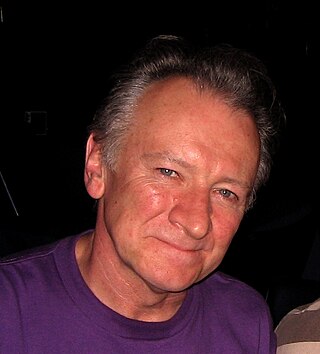
Dónal Lunny is an Irish folk musician and producer. He plays guitar and bouzouki, as well as keyboards and bodhrán. As a founding member of popular bands Planxty, The Bothy Band, Moving Hearts, Coolfin, Mozaik, LAPD, and Usher's Island, he has been at the forefront of the renaissance of Irish traditional music for over five decades.
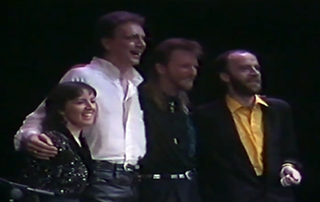
Nightnoise was a music ensemble active from 1984 to 1997. Their original blend of Irish traditional music, Celtic music, jazz, and classical chamber music inspired a generation of Irish musicians. They released seven albums on the Windham Hill label.
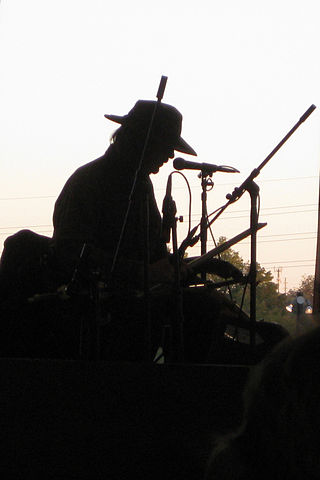
Paddy Keenan is an Irish player of the uilleann pipes who first gained fame as a founding member of The Bothy Band. Since that group's dissolution in the late 1970s, Keenan has released a number of solo and collaborative recordings, and continues to tour both as a soloist, and with singer/guitarist Tommy O'Sullivan.

Kevin Burke is an Irish master fiddler considered one of the finest living Irish fiddlers. For nearly five decades he has been at the forefront of Irish traditional music and Celtic music, performing and recording with the groups The Bothy Band, Patrick Street, and the Celtic Fiddle Festival. He is a 2002 recipient of a National Heritage Fellowship from the National Endowment for the Arts.

Mícheál Ó Domhnaill was an Irish singer, guitarist, composer, and producer who was a major influence on Irish traditional music in the second half of the twentieth century. He is remembered for his innovative work with Skara Brae, the first group to record vocal harmonization in Irish language songs, and The Bothy Band, one of the most influential groups in Irish traditional music. His reputation was enhanced by a successful collaboration with master fiddler Kevin Burke, and his work with the Celtic groups Relativity and Nightnoise, which achieved significant commercial and critical acclaim.

John Doherty was an Irish folk fiddler.

Tommie Potts (1912–1988) was an Irish fiddle player and composer from Dublin who gained iconic status in traditional Irish music circles for his virtuoso musicianship. Potts' given name is also frequently spelled Tommie. His music has influences from jazz and classical music, making it a highly individualistic take on the Irish music tradition.

Skara Brae were an Irish traditional music group from Kells, County Meath with origins in Ranafast, County Donegal. The group consisted of three siblings, Mícheál Ó Domhnaill, Tríona Ní Dhomhnaill, and Maighread Ní Dhomhnaill, with Dáithí Sproule from Derry. Their debut and only album Skara Brae is considered a seminal album in the Irish music tradition.

Tríona Ní Dhomhnaill is an acclaimed Irish traditional singer, keyboard player, and composer. She is considered one of the most influential female vocalists in the history of Irish music. Throughout her career, Tríona Ní Dhomhnaill has worked with renowned traditional Irish groups such as Skara Brae, The Bothy Band, and Nightnoise. In February 2024 it was announced that she was to be recognised with a Lifetime Achievement Award at the 6th RTÉ Radio 1 Folk Awards.

Celtic Folkweave is a studio album by Mick Hanly and Mícheál Ó Domhnaill, released in 1974 by Polydor Records. Considered a seminal album in the traditional Irish music genre, the musicians involved in the recording would go on to found some of the most innovative and important groups to perform traditional Irish music.
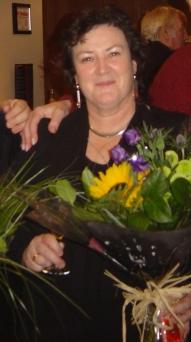
Maighréad Ní Dhomhnaill is an Irish traditional singer from Kells, County Meath. She is known for her work with the short-lived, but very highly regarded Skara Brae and her collaborations with her sister Tríona Ní Dhomhnaill, as well as other traditional musicians. She has recorded and performed with the West Ocean String Quartet (WOSQ).
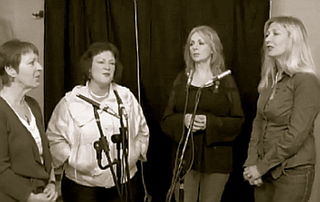
T with the Maggies are an Irish traditional supergroup from County Donegal, Ireland. The group first performed together in 2007 at a tribute concert to folk singer and guitarist Mícheál Ó Domhnaill, older brother of Triona and Maighread, and released their debut album in October 2010.
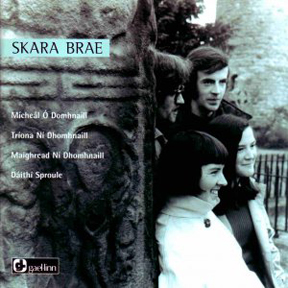
Skara Brae is an album of Irish traditional music by the group Skara Brae. Released by Gael Linn Records in 1971, the self-titled album contains "beautifully performed Gaelic songs" and is considered one of the most important albums in its genre, notable as the first recording to include vocal harmonization in Irish language songs.

Promenade is a studio album by Kevin Burke and Mícheál Ó Domhnaill, released in 1979 by Mulligan Records.
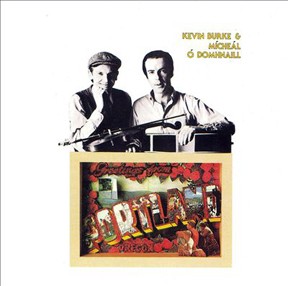
Portland is a studio album by Kevin Burke and Mícheál Ó Domhnaill, released in 1982 by Green Linnet Records. This is the second and final album by this duo who first played together with the popular Irish traditional group The Bothy Band.
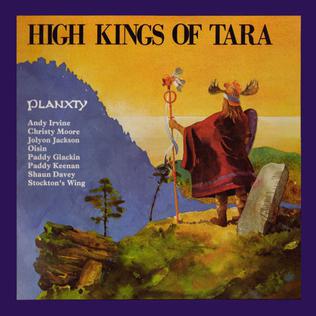
High Kings of Tara is a compilation album from Tara Music, showcasing tracks previously released by some of its artists: Shaun Davey, Oisín, Jolyon Jackson, Paddy Glackin, Paddy Keenan, Stockton's Wing and Christy Moore.
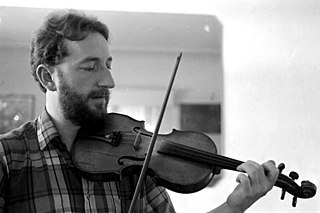
James Kelly is an Irish fiddler, composer, collector, researcher and teacher from Dublin. He is the son of County Clare fiddler, John Kelly, and has played with various groups including Patrick Street and Planxty. Kelly has been described by The Journal of Music as "one of the greatest Irish traditional fiddlers alive today" and by Cathy Benton, Professor of Music at Missouri Baptist University, as "one of the top 10 fiddlers in the world".
